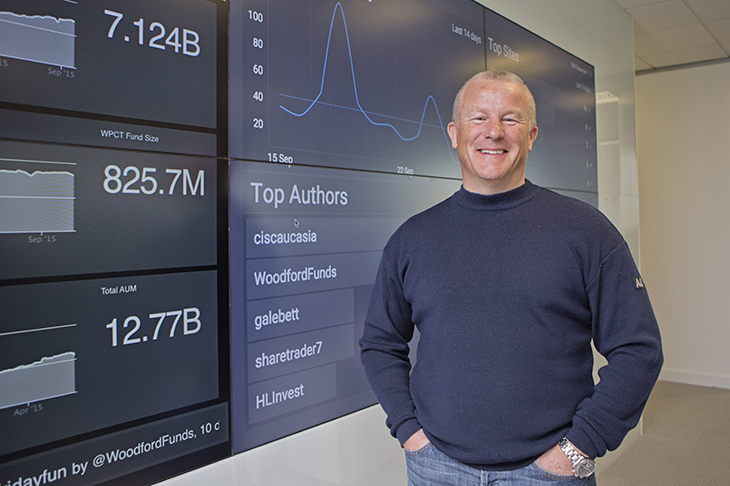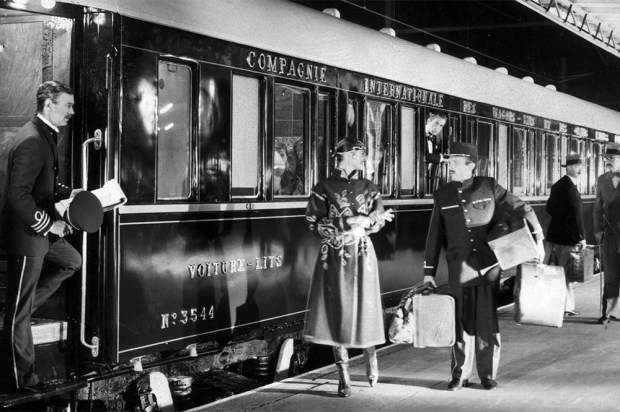It’s the season for kindness and conviviality. In that spirit — and recognising that business, like personal life, rarely follows an easy or predictable path — here’s a list of corporate heroes and anti-heroes who deserve your sympathy and a place at my fantasy Christmas table.
First, those who are moving on. Bob Dudley put BP back on its feet after the Gulf of Mexico disaster; if many shareholders thought he was paid too much for doing so, he can make amends by bringing the wine. Ross McEwan didn’t solve all the problems of RBS, but dragged the crippled bank a long way back towards normality. Mario Draghi gave new clout to the European Central Bank. Mark Carney didn’t quite do that for the Bank of England — but I’ll find a chair for him anyway, because I felt so sorry for him one morning when I found him queueing for a lonesome latte at King’s Cross station.
Next, swimmers against the tide. John Hays is the Sunderland travel agent who rescued thousands of jobs from Thomas Cook. Mike Ashley hasn’t persuaded politicians or Newcastle fans to love him, but continues his maverick one-man mission to save high-street retailing. Sir Richard Branson, approaching the Virgin brand’s 50th birthday, saw his last unloved West Coast train break down at Stockport but (after a deal with Air France-KLM fell through) still keeps control of his airline, Virgin Atlantic.
Finally, let’s reach for the ouija board and summon the best of this year’s departed: Sir Michael Edwardes of British Leyland changed the future of the British motor industry; Lee Iacocca was the all-American saviour of Chrysler; Bruno Schroder was the most benign of City proprietors; and Captain ‘Beachie’ Blackett was the celebrated fishmonger of Leadenhall Market.
What boardroom war stories they would tell over the flaming pudding. Who would I get to do the catering? Not Patisserie Valerie or the Crossrail team, that’s for sure. But I might ask fallen-star fund manager Neil Woodford to do the washing up.
Optimism doesn’t pay
Meanwhile, you’re probably wondering what happened to our Optimist Portfolio. In March, I quoted Rupert Harrison of US investment giant BlackRock to the effect that the UK offered investors ‘long-term growth potential… a knowledge-based economy [and] high-quality businesses’ as well as bargain prices because the pound was low and Brexit already priced in. So I invited readers to suggest domestic shares with hot post-Brexit prospects and — guided by this column’s veteran investor, Robin Andrews — constructed an imaginary £10 million UK Optimist Portfolio: £9 million spread across ten big-name stocks and a bold million in ten smaller ‘potential world-beaters’.
How did that work out? Rather badly, I’m afraid — not just because Brexit hasn’t happened yet but also because we decided to buy-and-hold in the manner of Warren Buffett, so could not sell sprinters or laggards. In our blue-chip list, weighting the portfolio by market capitalisation meant we had far too much of Lloyds Banking Group and Vodafone, which went nowhere. A focus on infrastructure drew us to Stobart and Costain, which have had special problems, and National Grid, which Labour threatened to renationalise. We’d have done best by betting our entire pot on Greggs, the sausage-roll maker.
Our tech-stock tiddlers did better overall: three — DiscoverIE, in electronic components, Angle in blood analysis and ReNeuron in stem-cell research — did very well indeed. ReNeuron’s price actually tripled until it was hit by the backlash of having Woodford as a major shareholder. On the downside, IGas and Egdon suffered in the anti-fracking storm. All told, our Optimist portfolio was 10 per cent down shortly before the election and its expected Boris Bounce. Either way, we’d have been much better simply buying the FTSE 250, which rose 16 per cent over the same nine-month period.
‘Does this prove optimism is bad for investment? Do pessimists make better stock-pickers?’ I asked the veteran investor over roast duck in our favourite North Yorkshire pub — the Plough at Wombleton, since you ask. ‘Your mistake was asking for readers’ tips when Warren Buffett isn’t a reader,’ he replied, reaching for his notebook. ‘But here’s my own little list of next year’s winners…’ I’d call that optimism personified.
How the story ends
Let’s be honest, this column’s restaurant tips have performed better than its share picks in 2019. So let me end by mentioning the year’s best lunches. Runner-up rosette goes to La Cuina, a tiny Catalan bistro in Cardiff. We were writers, broadcasters and bookmen, male and female, Brits and Americans. Un-usually, we did not whinge about how little we earn or the jobs that never came our way; there was too much gossip to share about colleagues not present. When we apologised to other lunchers for the noise, we received an unlooked-for compliment for the equality of our discourse — no one dominant, no one silent. We ate croquetas, hake and lamb and drank a lovely dessert wine from the Pyrenean foothills called Bac de les Ginesteres; and before we left we applauded the chef.
And so to lunch of the year, possibly the decade. It was at Oxford’s Cherwell Boathouse on a sunny April Saturday. Six of my college cohort, who had not eaten together since the mid-1970s, met for a reunion that could have been uncomfortable, even bitter, because our life paths had diverged so far: a vice-chancellor, a judge, a big-bucks banker, a branding guru who we thought would have become a famous actor, a left-wing playwright who ended up homeless, and me. But it was wonderful. We ate whatever was put in front of us, drank buckets of wine and laughed all afternoon as old anecdotes rolled out and old rivalries evaporated.
If there was an unspoken conclusion, it was that life is less about winning prizes, more about being there to find out how the story ends; and that a really good table makes it all worthwhile.
Got something to add? Join the discussion and comment below.
Get 10 issues for just $10
Subscribe to The Spectator Australia today for the next 10 magazine issues, plus full online access, for just $10.
You might disagree with half of it, but you’ll enjoy reading all of it. Try your first month for free, then just $2 a week for the remainder of your first year.















Comments
Don't miss out
Join the conversation with other Spectator Australia readers. Subscribe to leave a comment.
SUBSCRIBEAlready a subscriber? Log in